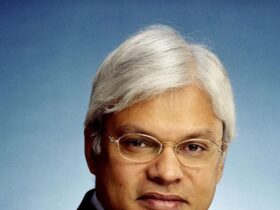Turkish Cypriots will vote on Sunday to elect their new leader and “president” of the Turkish Republic of Northern Cyprus (TRNC), the self-declared state recognized only by Turkey.
Since the system of governance is a parliamentary democracy, the powers of the Turkish Cypriot “President” are largely limited to managing negotiations for a resolution of the Cyprus issue – following inter-communal violence in the 1960s, the 1974 Turkish military intervention led to the partition of the island into a Greek Cypriot South and a Turkish Cypriot North.
But in this election there is also a concern about preserving the character and identity of the community. Speaking to DW, Turkish Cypriot academic and former EU lawmaker Niyazi Kizilurek said, “The elections to choose a new leader take on the nature of a referendum, depending on the will of Turkish Cypriots with respect to the Cyprus problem and the protection of the community’s ethno-political identity.”
Right-winger Ersin Tatar and leftist Tufan Erhurman are the main contenders for the top post. The two most recent opinion polls showed significant discrepancies over who among the two leading candidates holds the advantage.
Survey conducted by Center for Migration, Identity and Rights Studies Erhurman was shown to be ahead with 50.4% compared to Tatar’s 40.6% – a difference of almost 10 percentage points which, if confirmed, could lead to a first-round victory.
In contrast, a survey by Turkish pollster Jenner showed that Tatar maintained a slight lead with 51.2% against Erhurman’s 47.9%, a result that leaves open the possibility of a second round.
Tatars are supported by Türkiye
The outgoing Turkish Cypriot leader, Ersin Tatar, is seeking re-election for a second term. They are supported by the right-wing National Unity Party and the Rebirth Party, which is linked to the TRNC’s Turkish population and is known as the “Settlers Party” in the Greek Cypriot community.
In line with Ankara’s position and that of Turkish President Recep Tayyip Erdogan, who has stated that “the only realistic solution to the Cyprus issue is the acceptance of two states on the island,” Tatar has promised to continue his policy of promoting a two-state solution for the next five years.
Tatar’s stance on the Cyprus issue, combined with Greek Cypriot perception that it has withdrawn from the UN-agreed framework for settlement, has created a situation that has prevented any chance of genuine negotiations in recent years.
The rapprochement between Tatar and Erdogan on the Cyprus issue has ensured Ankara’s support for his candidacy. This support has been expressed through visits from politicians from Erdogan’s AKP party, figures such as Turkish Vice President Cevdet Yilmaz and former German international footballer Mesut Ozil, who is known for his personal friendship with Erdogan.
However, Türkiye’s support for the Tatars is not limited to its stance on the Cyprus issue. It is also rooted in their tolerance for Ankara’s political Islam agenda. During his “presidency” and under the administration of the National Unity Party, a controversial regulation allowing the wearing of hijab in Turkish Cypriot schools was adopted.
The move provoked a strong reaction among the majority of Turkish Cypriots, who saw it as a sign of further Islamization and the erosion of the community’s secular identity. However, the Constitutional Court in the TRNC overturned the regulation in September, according to Turkish media reports.
federation on the agenda
In contrast, Tufan Erhurman is running for the leadership as a candidate for the leftist Republican Turkish Party. He is also supported by the party of former Turkish Cypriot leader Mustafa Akinci and Serdar Denktaş, son of historical Turkish Cypriot leader Rauf Denktaş. Erhurman’s agenda emphasizes the visibility of the Turkish Cypriot community, its culture and secular identity.
Regarding the Cyprus issue, Erhurman has stressed his commitment to UN resolutions calling for a bi-territorial, bi-communal federation, which he describes as the only realistic option. He also underlined that the Community’s security and future prospects are linked to Europe. Erhurman has set out specific conditions for returning to the negotiating table if elected, encouraging the Cypriot President and Greek Cypriot leader Nicos Christodoulides to be ready for negotiations.
“Tufan Erhurman wants to negotiate on the basis of the federation,” explained academic Kizylyurek, “he set conditions that included deadlines and result-oriented negotiations, while also demanding that the status quo should not be restored if the negotiations fail because of the Greek Cypriot side.”
He added, “This could translate into a demand for an end to the isolation of the community through direct trade and direct flights, which under the current circumstances are exclusively through Turkey.”
Türkiye’s population growth could increase electoral ‘dominance’
Nikos Moudouros, a professor of Turkish and Middle Eastern studies at the University of Cyprus, told DW that recent demographic developments in the Turkish Cypriot community could influence the vote.
Moudouros indicated that, of the 218,000 voters, about 55%–60% are native Turkish Cypriots, while about 40%–45% are voters who have one or no parents who are Turkish Cypriots.
The demographic change in the unrecognized TRNC is linked to the granting of thousands of “citizenships” to Turkish citizens over the past five years. Citing data from past electoral contests within the Turkish Cypriot community, Moudouros pointed out that “the political power of the native Turkish Cypriots has been steadily declining, and it is likely that the population growth of the Turkish element could also translate into numerical dominance at the ballot box in the next election.”
Edited by: Elmas Topcu and Rüdiger Rossig






Leave a Reply